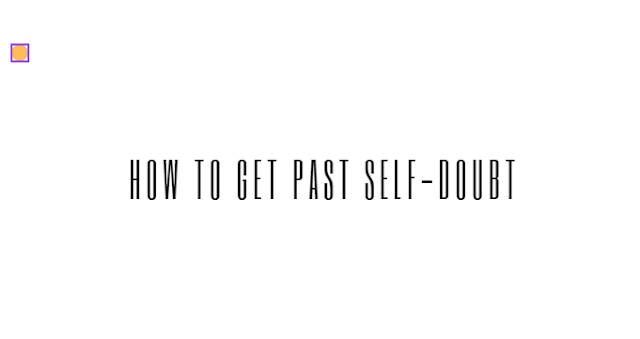Title: Overcoming Self-Doubt: A Pathway to Personal Growth
Introduction:
Self-doubt is a universal human experience that can hinder personal growth and achievement. It's the voice within us that questions our abilities, worth, and potential. However, learning to navigate and overcome self-doubt is essential for reaching our goals and realizing our full potential. In this essay, we will explore effective strategies for overcoming self-doubt and cultivating self-confidence.
Acknowledge and Understand Self-Doubt:
The first step in overcoming self-doubt is acknowledging its presence and understanding its origins. Self-doubt often stems from past experiences, societal pressures, or unrealistic expectations we place on ourselves. By recognizing the underlying causes of our self-doubt, we can begin to address them effectively.
Practice Self-Compassion:
Self-compassion involves treating ourselves with kindness and understanding, especially during moments of self-doubt. Instead of criticizing ourselves for perceived shortcomings, we should practice self-compassion by offering words of encouragement and reassurance. Remember that everyone experiences self-doubt at some point, and it does not define our worth or capabilities.
Set Realistic Goals:
Setting realistic and achievable goals is crucial for overcoming self-doubt. Unrealistic expectations can fuel feelings of inadequacy and undermine our self-confidence. Break larger goals into smaller, manageable tasks, and celebrate each accomplishment along the way. By setting attainable goals, we can build momentum and prove to ourselves that we are capable of success.
Challenge Negative Thoughts:
Self-doubt often manifests as negative thoughts and beliefs about ourselves. It's essential to challenge these negative thought patterns by questioning their validity and replacing them with more positive and empowering affirmations. Cognitive-behavioral techniques, such as cognitive restructuring, can help reframe negative thoughts and promote a more optimistic outlook.
Seek Support and Feedback:
Seeking support from friends, family, or mentors can provide valuable perspective and encouragement when facing self-doubt. Surround yourself with people who believe in your abilities and are willing to offer constructive feedback. Additionally, constructive criticism can help identify areas for improvement and boost self-confidence in the long run.
Focus on Personal Growth:
Instead of fixating on perceived failures or setbacks, focus on personal growth and learning opportunities. Embrace challenges as opportunities for growth and development rather than reasons to doubt yourself. Adopting a growth mindset, as advocated by psychologist Carol Dweck, can help shift our perspective from fear of failure to enthusiasm for learning and improvement.
Practice Self-Care:
Taking care of our physical, emotional, and mental well-being is essential for combating self-doubt. Make time for activities that nourish your body and soul, such as exercise, meditation, hobbies, and spending time with loved ones. Prioritize self-care as a way to replenish your energy and resilience in the face of self-doubt.
Conclusion:
Overcoming self-doubt is an ongoing journey that requires patience, self-awareness, and resilience. By acknowledging its presence, practicing self-compassion, setting realistic goals, challenging negative thoughts, seeking support, focusing on personal growth, and prioritizing self-care, we can gradually diminish the power of self-doubt and cultivate greater self-confidence. Remember that self-doubt is a natural part of the human experience, but it does not have to dictate our lives or limit our potential for success and fulfillment.




.png)



.png)




0 Comments